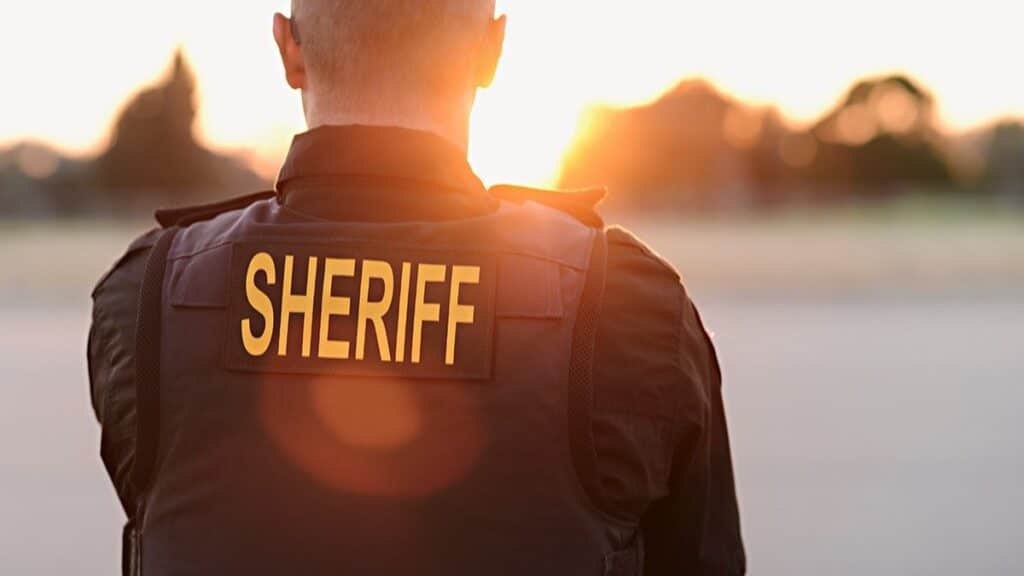What does a Sheriff do in Victoria?
In Victoria, sheriffs are officers of the Supreme Court responsible for enforcing warrants in relation to unpaid fines that are registered with Fines Victoria and the Courts (known as enforcement warrants). In some circumstances, the police may also assist a sheriff in the execution of sheriff functions under the Fines Reform Act 2014 (Vic) (FRA) and hold powers that a sheriff would under the act, including serving a 7-day notice (see ss 183 and 183).
Enforcement warrants are not executed by sheriffs under the FRA s 119 unless:
- the person has been served with a 7-day notice (warning that enforcement action will be taken);
- a demand has been made for payment of the outstanding fines; and
- the 7-day notice period has expired.

The Sheriff will generally attempt to contact a person by phone before serving a 7-day notice. Importantly, a person can request that their lawyer be present when a sheriff’s officer serves the 7-day notice, and it is advisable to do so. We can assist you by negotiating with the Sheriff to help delay the execution of the warrant and prepare an enforcement review application to cancel enforcement. See ‘What to do if you are issued a 7-day notice‘ for more.
See also ‘Applying for an Enforcement Review‘.
What are the powers of a sheriff in Victoria?
Upon the expiry of the 7-day notice if no action is taken, the sheriff may:
- break, enter and search your home or business address for your personal property;
- seize your personal property; and
- sell your personal property to pay off the outstanding amount (including the costs of execution per s 109 of the FRA).
The sheriff also has power to physically restrain anyone who tries to stop them from enforcing the warrant (Sheriff’s Act 2009 (Vic) s 16).
Sheriff officers have a range of means to get in contact with people who have outstanding warrants including stopping you at a police roadblock, removal of number plates and using Automatic Number Plate Recognition (ANPR) technology to identify vehicles registered to owners with outstanding warrants.
What property can the sheriff seize?
The Sheriff can seize the following to recover debt:
- Any goods where a creditor has a beneficial interest
- Money, cheques, bonds and securities
- The sheriff can seize joint property and sell it (the joint owner of the property, once the item is sold, will receive half the sale price, and the balance will go to the judgment creditor to pay off the debt).
What property can’t the sheriff seize?
- Essential household items and furniture (necessary for your household’s domestic use – 2 TVs, appliances, etc);
- One vehicle valued under a prescribed amount ($7800, as at 26 April, 2018);
- Tools of trade up to a prescribed amount ($3700, as at 26 April 2018);
- Property that is rented, mortgaged, on hire purchase or belongs entirely to someone other than the judgment debtor;
- Any item that would be protected in bankruptcy.

